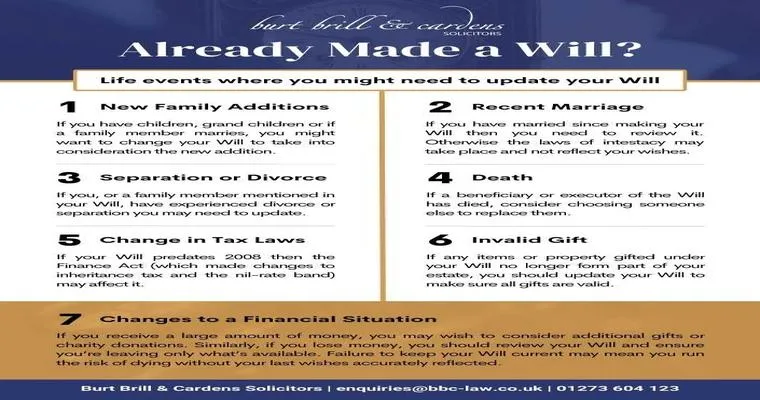Creating a will is an essential part of estate planning, allowing individuals to dictate how their assets will be distributed after their death. However, circumstances change, and you may find yourself asking, "can you change or cancel a will?" The good news is that "changing a will" is not only possible, but it is also a common practice. Understanding the options available to modify or revoke a will can help ensure that your final wishes accurately reflect your current situation and intentions.
Understanding Wills and Their Modifications
A will is a legal document that outlines how your assets should be distributed upon your death. It can specify beneficiaries, guardians for minor children, and even funeral arrangements. However, life events such as marriage, divorce, the birth of a child, or significant changes in financial status may prompt you to reconsider your will.
To answer the question, "can you change or cancel a will?" Yes, you can. There are generally two primary ways to do this: making a codicil or revoking the existing will entirely.

Making Changes with a Codicil
A "codicil" is a legal amendment to your existing will. It allows you to add, modify, or remove specific provisions without needing to create an entirely new document. This is particularly useful for minor changes, such as updating beneficiary names or altering distribution percentages.
To ensure that your codicil is valid, make sure to follow the same legal requirements as your original will, which often includes signing it in the presence of witnesses. It’s crucial to clearly reference the original will to prevent any confusion about which document governs your estate.
Revoking a Will
If your changes are more extensive, or if you wish to create a completely new will, you may opt to revoke your existing will. This can be done in several ways:
1. "Creating a New Will": When drafting a new will, explicitly state that it revokes all previous wills. This method is straightforward and ensures clarity regarding your intentions.
2. "Physical Destruction": Another way to revoke a will is to destroy it physically. This could involve shredding or burning the document. However, it is essential to be cautious with this method, as it must be clear that the destruction was intentional and that you no longer wish for that will to be valid.
3. "Written Statement": In some jurisdictions, you can also revoke a will by making a written statement declaring your intent to revoke it. This must be signed and dated, though the specific legal requirements may vary.

Important Considerations
When contemplating whether you can change or cancel a will, it is vital to consider a few important factors:
"Legal Requirements": Different jurisdictions have varying laws regarding wills and their amendments. Always check the legal requirements in your state to ensure your changes are valid.
"Witnesses": For both codicils and new wills, having witnesses is often a requirement. Ensure that your witnesses are impartial and not beneficiaries of your estate.
"Consulting an Attorney": If you have significant assets or complex family dynamics, it may be wise to consult with an estate planning attorney. They can provide valuable guidance and ensure that your will reflects your wishes accurately.
Conclusion
In summary, if you find yourself wondering, "can you change or cancel a will?" the answer is a resounding yes. Whether through a codicil for minor changes or revoking the will entirely for more extensive modifications, you have the power to ensure that your legal document aligns with your current circumstances and desires. By staying informed about the processes involved in changing or canceling a will, you can secure peace of mind knowing that your estate will be handled according to your wishes.





